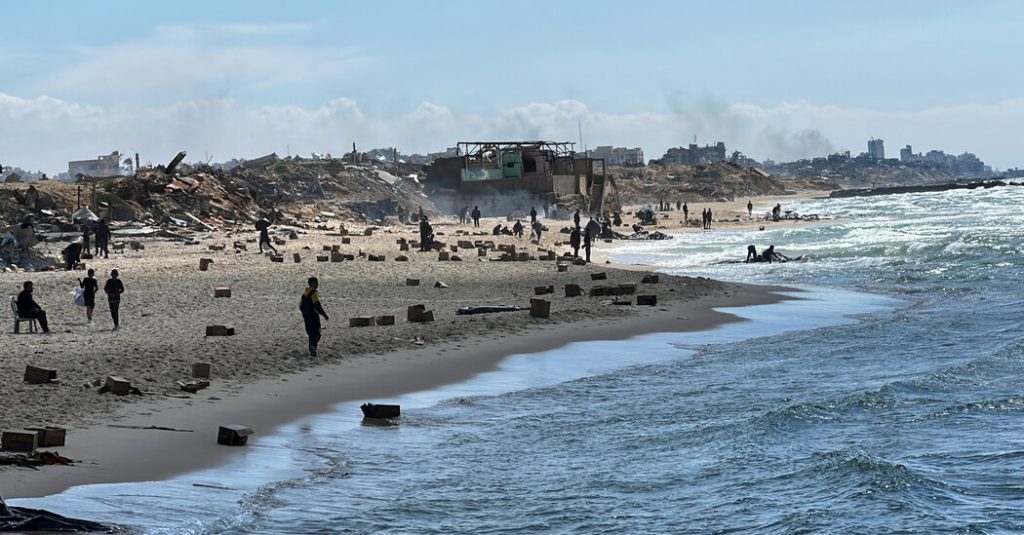The authorities in Gaza have reported that several people drowned while trying to retrieve airdropped aid packages that had fallen into the Mediterranean. This incident has prompted calls for an end to airdrops over the territory and an increase in aid deliveries by land. Witnesses stated that people waded into the water from a beach in northern Gaza to retrieve the aid, where around a dozen people drowned, with at least one becoming entangled in a parachute. The details of the incident are still unclear, including which country was responsible for the airdrop.
The United States confirmed that three aid bundles out of approximately 80 dropped in Gaza had parachute malfunctions and landed in the water, but they were intentionally dropped over water with the intention of being carried by wind drift to land in case of such malfunctions. This is not the first incident of fatalities connected to aid drops in Gaza, as earlier in the month, at least five Palestinians were killed when airdropped aid packages reportedly fell on them in Gaza City. The government media office in Gaza reported that six others died in stampedes while trying to retrieve aid from other airdropped locations.
While the United Nations and aid organizations advocate for the use of trucks as the safest and most effective means of delivering aid to Gaza, several governments have resorted to airdrops to supplement aid that arrives by land, due to a significant decrease in aid entering Gaza since Hamas led an attack on Israel. Britain conducted its first airdrop of aid to Gaza on Monday, delivering over 10 tons of supplies along the northern coastline as part of a mission led by Jordan. The governments argue that Israel’s stringent inspections of aid trucks have slowed down aid deliveries, while Israel blames UNRWA for delaying the process of distributing aid inside the territory.
The use of airdrops over Gaza has led to multiple incidents of fatalities and injuries, with calls for an end to such operations in favor of increased land deliveries. The humanitarian crisis in Gaza, with a population of over two million facing a hunger crisis that borders on famine, highlights the urgent need for effective aid distribution mechanisms. The reliance on airdrops by various governments and aid organizations underscores the challenges faced in delivering essential supplies to Gaza, particularly in light of the decrease in aid entering the territory following recent events.
The tensions between Israel, aid organizations, and the authorities in Gaza further complicate the aid delivery process, with each party blaming the other for delays in providing crucial assistance to the population in need. Despite the efforts of various governments and humanitarian groups to alleviate the suffering in Gaza, the situation remains dire, with ongoing challenges in ensuring timely and efficient aid distribution. Collaborative efforts and effective coordination are necessary to address the urgent needs of the population in Gaza and prevent further tragedies resulting from aid drops and stampedes in the pursuit of essential supplies.


